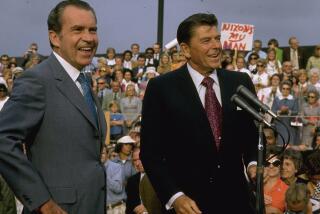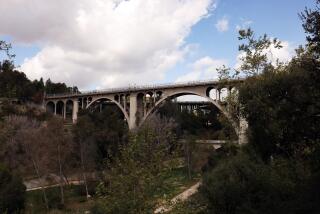Fremont Found Fame and Controversy
- Share via
Map-making was his trade, but fortuitous timing and perhaps his own derring-do led explorer John C. “The Pathfinder” Fremont into history books as one of America’s more spectacular and controversial figures.
A native of Savannah, Ga., Fremont was on his third expedition with the U.S. Army Topographical Corps when he arrived in California on the eve of the Mexican War. Although his specific orders and authority to do so appear vague, he took command of the California Volunteer Battalion at Sonoma and marched south.
With his troops quartered at the San Fernando Mission and those of Mexican Gen. Andres Pico camped in Glendale, the two men met Jan. 13, 1847, on the porch of an adobe in the middle of what is now Lankershim Boulevard near Universal City. There they signed the Capitulation Papers that ended hostilities in California between the United States and Mexico. The act is regarded by many as the birth of California.
Fremont’s subsequent court-martial over his authority to take such actions did not prevent him from being chosen as one of California’s first two senators after the territory achieved statehood in 1850. In 1856, he became the Republican Party’s first presidential candidate, reportedly turning down a similar offer by the Democrats because they supported slavery. He lost the election to Democrat James Buchanan.
Given a command during the Civil War, he was again dogged by political and military gaffes and eventually relieved of his duties by President Abraham Lincoln.
Fremont died in 1890.
In what probably would have made the topographer proud, the word “Fremont” dotted late 19th century maps as the name of many a county, town, canyon and mountain peak. By 1900, many such places had been renamed. Cities in Nebraska, Ohio and California’s Bay Area retain the name. Locally, his legacy survives in Glendale, where a city park and an elementary school bear his name.
More to Read
Sign up for Essential California
The most important California stories and recommendations in your inbox every morning.
You may occasionally receive promotional content from the Los Angeles Times.










